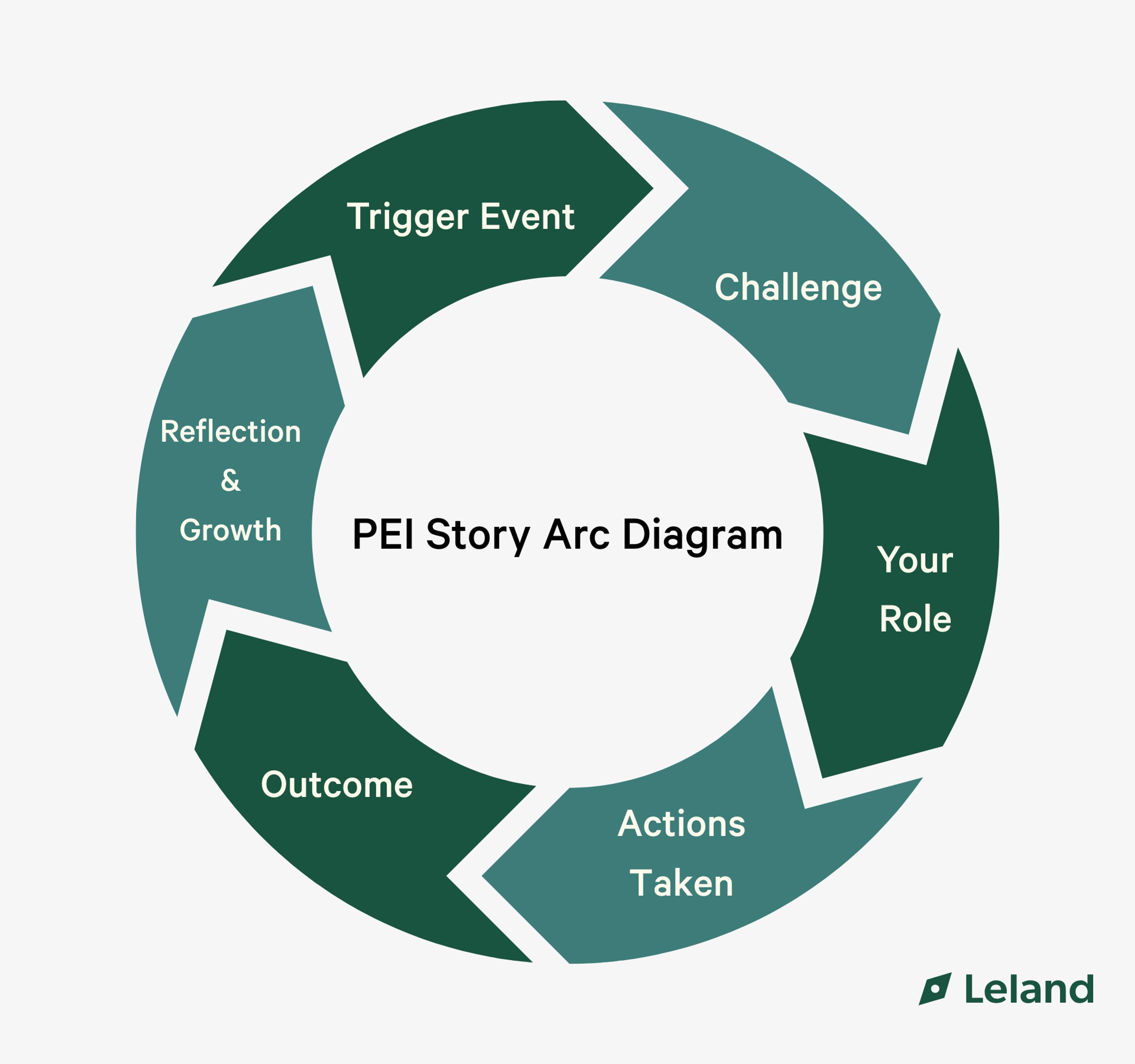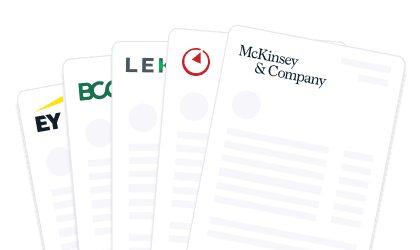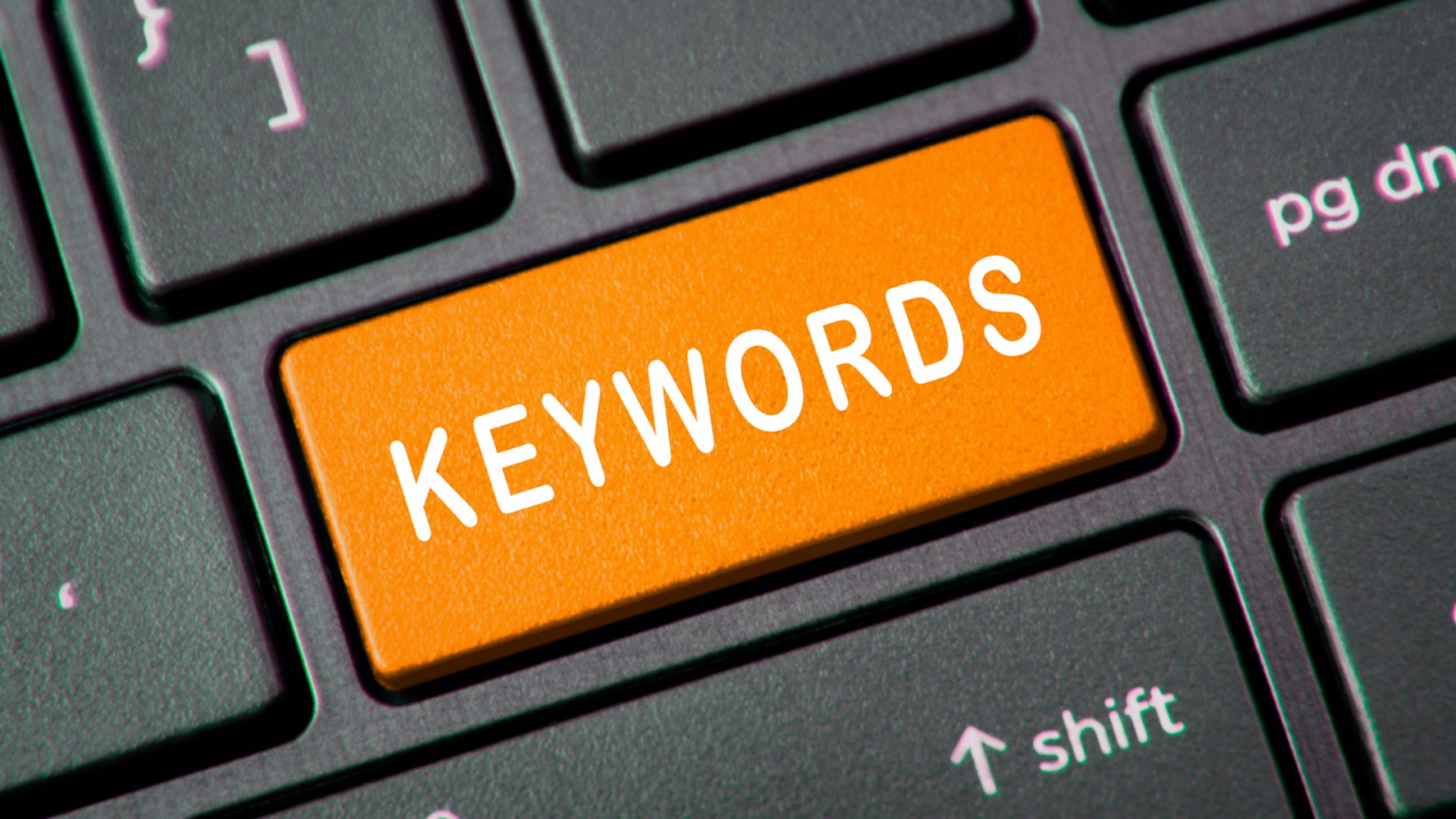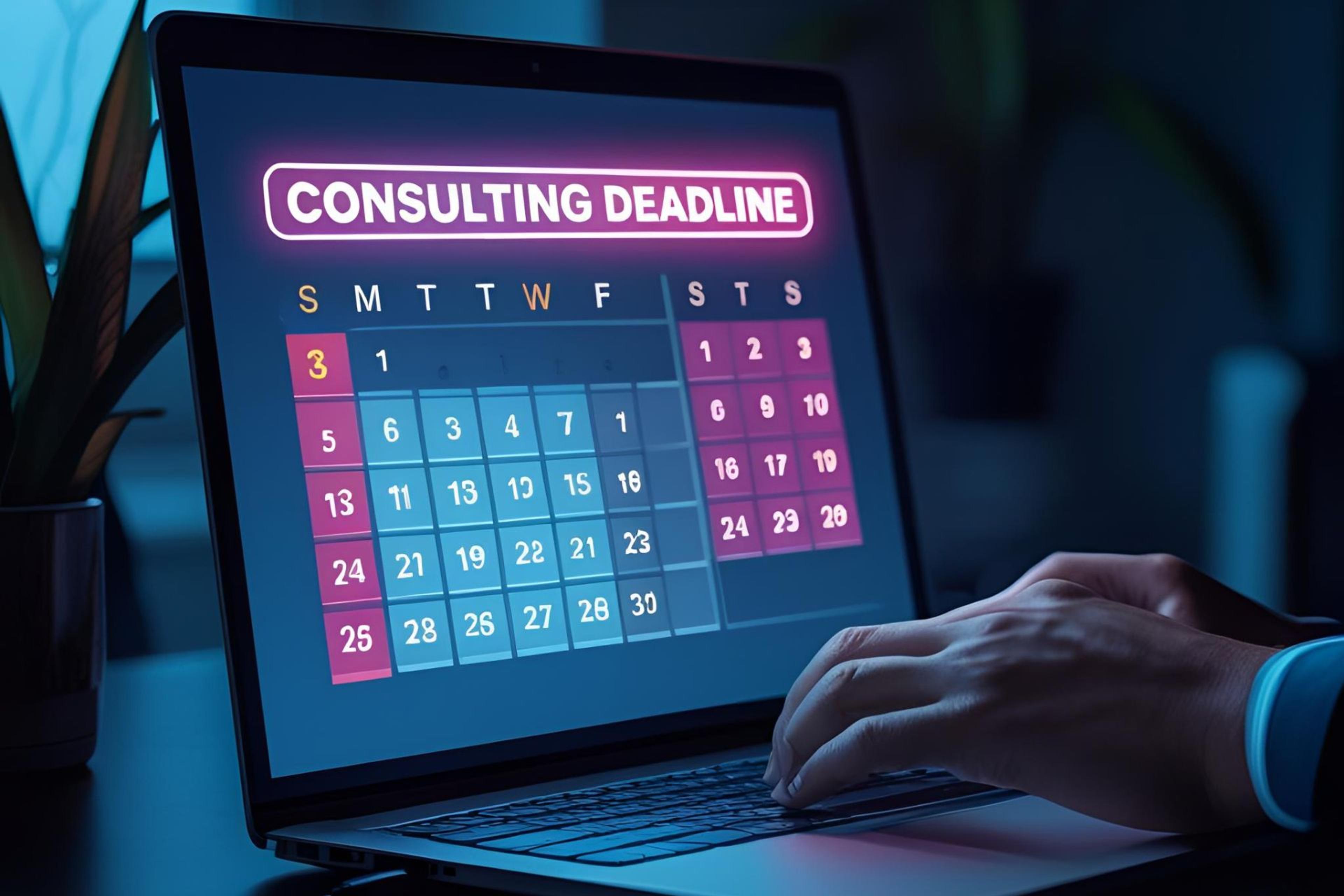McKinsey PEI Guide: Questions & Expert Tips (2025)
Ace your McKinsey PEI with expert tips, real question examples, and frameworks to craft compelling, high-impact stories.
Posted September 22, 2025

Join a free event
Learn from top coaches and industry experts in live, interactive sessions you can join for free.
Table of Contents
The McKinsey Personal Experience Interview (PEI) is one of the most misunderstood and make-or-break parts of the McKinsey interview. While many candidates obsess over cracking the case, it’s often the Personal Experience Interview that determines whether offers are won or lost. Why? Because it tests the core leadership traits McKinsey values most: personal impact, entrepreneurial drive, inclusive leadership, and resilience under pressure.
This isn’t your typical behavioral interview. You’ll need to go deep on a single story, navigate intense follow-up questions, and demonstrate real reflection, not just polish. In this guide, we’ll walk you through everything: the specific skills McKinsey interviewers are trained to assess, real PEI questions and high-scoring answers, expert-backed frameworks (like STAR vs. PARADE), and a story-building system to help you stand out.
Whether you're prepping for first-round interviews or gearing up for the final round, this is your playbook to ace the McKinsey PEI with confidence.
Read: McKinsey Interview Overview: Case, PEI, & What to Expect
What the McKinsey PEI Is and Why It Matters
The McKinsey PEI, or Personal Experience Interview, is a separate behavioral portion of the McKinsey interview process. Unlike a standard behavioral interview, the PEI is deeply focused on one core story per question, and it’s where many otherwise strong candidates fail.
This portion typically lasts 10–15 minutes at the start of each interview round, including first-round interviews and final-round interviews, and aims to evaluate critical soft skills that are just as important as your case performance.
Whereas the case tests structured thinking and problem-solving skills, the PEI assesses how well you embody McKinsey values, especially around leadership, communication, and resilience.
Callout: “Our personal experience interview explores how you’ve handled challenging situations in the past.” - McKinsey & Company: Interviewing at McKinsey
Skills and Traits McKinsey Evaluates in the PEI
In the PEI, McKinsey interviewers are not just checking if you have impressive credentials; they’re looking for signals that you’ll be a successful consultant who can thrive in high-pressure client environments, manage teams, and drive meaningful change.
Here are the core traits they evaluate:
| Skill / Trait | What It Means at McKinsey | What Interviewers Probe For |
|---|---|---|
| Personal Impact | Your ability to influence decisions, drive alignment, and communicate persuasively with clients, peers, or senior stakeholders, even without formal authority. | Did you navigate resistance or skepticism? How did you adapt your approach to the audience? What outcome did your actions lead to, and how did you contribute to it directly? |
| Leadership | Taking ownership, setting direction, and inspiring others toward a shared goal, especially in ambiguous or high-pressure environments. | Did you motivate or empower a team? How did you establish credibility or earn trust? Were you responsible for the outcome? Did you model McKinsey’s leadership standards under stress? |
| Entrepreneurial Drive | Proactively taking initiative, persisting through obstacles, and delivering results without needing external direction, especially in challenging or unstructured contexts. | Did you push through setbacks or navigate a challenging environment? What risks did you take? Did you own the result from start to finish? How did you measure success? |
| Inclusive Leadership | Creating a psychologically safe environment, incorporating diverse perspectives, and making others feel heard, respected, and empowered. | Did you build alignment across differences? Resolve a team conflict with empathy? How did you ensure everyone’s voice was included in decision-making? What was the result? |
Each McKinsey PEI story should be mapped to one of these core traits; trying to demonstrate all of them in a single story is a common mistake candidates make.
Common McKinsey PEI Questions and How to Approach Them
The McKinsey Personal Experience Interview is not a typical behavioral interview. You’ll be asked to share one detailed story per question, and your McKinsey interviewer will dig deep with rapid-fire follow-up questions to test how clearly you think, act, and reflect.
Here are some of the most common McKinsey PEI questions:
- “Tell me about a time you led a team through a challenging situation.” (Leadership)
- “Describe a time you convinced someone to adopt your idea.” (Personal Impact)
- “Share a time you overcame significant obstacles.” (Entrepreneurial Drive)
- “Tell me about a time you resolved a conflict on a team.” (Inclusive Leadership)
What Makes These Questions So Challenging?
While these may look like standard behavioral questions, they’re not. McKinsey interviewers expect depth, precision, and reflection, not a surface-level narrative. Many candidates, especially from other consulting firms or traditional industries, are caught off guard by how intense the probing gets.
According to multiple candidates in this Reddit thread, interviewers frequently interrupted their stories to ask:
“What exactly did you say?”
“Why did you choose that approach?”
“What did the other person think?”
“What would you do differently now?”
“What was the measurable result?”
These multiple follow-up questions aren’t just curiosity; they’re how McKinsey evaluates candidates on clarity, structured thinking, self-awareness, and real impact.
Expert Tips to Nail Your PEI Answers
To deliver a strong, high-conviction answer, follow this approach:
- Choose one detailed, high-stakes story - Don’t skim the surface with broad summaries. Pick a moment with tension, risk, and real stakes, a personal experience interview PEI story where something meaningful was on the line.
- Anchor it to one trait - Make sure the story clearly maps to a specific trait McKinsey tests: personal impact, entrepreneurial drive, inclusive leadership, or leadership. Avoid trying to hit all four; it waters down the signal.
- Structure it clearly - Use the STAR or PARADE method (see next section) to lay out the situation, what you did, and the outcome, including how you measured success.
- Show reflection and growth - McKinsey isn’t looking for polished perfection. They want to see that you learned, grew, and evolved, which is key to becoming a successful consultant. Close with what you’d do differently or what insight you carried forward.
- Expect a “conversation,” not a monologue - Treat the PEI like a dynamic dialogue. Stay calm when interrupted. Interviewers want to know how you think under pressure, not just what you did
Even the best stories fall flat without structure. Strong PEI answers are clear, focused, and emotionally resonant, not a rushed list of achievements. McKinsey interviewers are trained to look for structured thinking, reflection, and impact under pressure. A sloppy story = a red flag.
Framework for Structuring Your PEI Answers
Here are two expert-approved frameworks to structure your personal experience interview PEI responses:
STAR: Direct and Efficient
Best for: Clear, straightforward situations with measurable outcomes
- Situation – What was the context? Who was involved?
- Task – What was your specific responsibility or objective?
- Action – What did you do (not your team)? Be detailed.
- Result – What happened? Quantify the impact, if possible.
Use STAR when the emphasis is on outcome and clarity.
PARADE: Reflective and Nuanced
Best for: Stories involving entrepreneurial drive, inclusive leadership, or complex team dynamics
- Problem – What challenge were you facing?
- Anticipated Consequence – What was at stake if you didn’t act?
- Role – What position or influence did you have in the situation?
- Action – What did you do to address the problem?
- Decision – What critical choices did you make along the way?
- End Result – What was the final outcome, and how did it affect others?
PARADE is particularly effective when you need to show maturity, ownership, and a deeper understanding of your decisions.
PEI Story Arc Diagram

Use this to shape your story from start to finish:
- Trigger Event – What kicked off the situation?
- High-Stakes Challenge – What made it difficult or ambiguous?
- Your Role – What were you responsible for? Why were you the one to step up?
- Concrete Actions – What specific things did you do? Be detailed.
- Measurable Outcome – What changed because of your actions? Include numbers or stakeholder impact if possible.
- Reflection & Growth – What did you learn? How did this experience shape how you lead or solve problems now?
Pro Tip: Always end with lessons learned. This signals maturity, self-awareness, and growth, which are key traits McKinsey evaluates candidates on.
Watch: McKinsey Case Interview Workshop: Questions, Process, & Examples (From Ex-McKinsey Interviewers)
Strong McKinsey PEI Examples (Stories with Analysis)
Answering McKinsey PEI questions needs to have a targeted, reflective, and evidence-based approach of how you think and lead. Below are anonymized examples modeled on real candidate stories that scored highly with McKinsey interviewers, along with breakdowns of why they work and how they reflect the specific traits McKinsey evaluates.
Each story focuses on one clear situation, not a laundry list, and showcases how the candidate thinks, leads, adapts, and reflects under pressure.
1. Personal Impact: Influencing a Resistant Stakeholder
Story: As the DEI chair of a student government committee, the candidate led an initiative to revise an outdated diversity policy. A tenured professor on the review board opposed the changes. Rather than escalating, the candidate scheduled 1:1 meetings to understand the professor’s concerns, adjusted the language of the proposal based on feedback, and gradually gained support. The final policy passed unanimously.
Why It Works: Shows ability to navigate opposing opinion with empathy and strategy, demonstrates structured thinking under pressure and political nuance, and highlights personal impact McKinsey wants, influencing a skeptical stakeholder with no formal authority
Trait Demonstrated: Personal Impact
Bonus Signal: Emotional intelligence + stakeholder alignment under tension
2. Leadership: Reviving a Failing Organization
Story: The candidate inherited a leadership role in a student consulting club that had seen a 75% drop in engagement. They assessed root causes, reorganized the leadership team, launched a new recruiting strategy, and personally mentored new project leads. Within one semester, active participation tripled, and the club secured real client projects with local startups.
Why It Works: Shows vision-setting, people leadership, and operational problem-solving, has clear metrics of success (participation, client work), and balances both strategy and hands-on execution.
Trait Demonstrated: Leadership
Bonus Signal: Ownership mindset + building systems that scale
3. Entrepreneurial Drive: Building a Scalable Mentorship Program
Story: After identifying high first-year dropout rates in the business school, the candidate designed a peer mentorship initiative from scratch. Despite bureaucratic resistance, they piloted it in one department, gathered feedback, and used data to convince administrators to expand the program school-wide. It’s now a permanent fixture serving 200+ students annually.
Why It Works: Tackles a real problem without being asked: the classic entrepreneurial drive McKinsey looks for, demonstrates resilience in a challenging environment (bureaucracy, ambiguity), and shows problem-solving from identification to scale
Trait Demonstrated: Entrepreneurial Drive
Bonus Signal: Long-term, measurable impact + proactive ownership
What Makes These Stories Strong?
| Element | Why It Matters to McKinsey |
|---|---|
| Clear trait alignment | Each story maps tightly to one specific trait McKinsey scores |
| Measurable outcomes | Concrete results show the candidate drives meaningful change |
| High-stakes tension | All examples involve uncertainty, resistance, or stakes, no fluff |
| Reflection + growth | Shows coachability, humility, and a learning mindset |
| Authentic voice | Each example feels human, not scripted or resume-style |
If you want help reviewing your own stories, work with these top-rated consulting coaches who are former McKinsey insiders who have helped hundreds of candidates land MBB offers:
- Alberto S. - Former Associate Partner at McKinsey with 13+ years of experience, Alberto has helped 150+ candidates land MBB offers through direct, high-performance coaching grounded in real hiring insight.
- Samantha G. - Ex-McKinsey Business Analyst and campus recruiter, Samantha combines insider knowledge with strategy experience at Google to help candidates craft standout stories and land top offers.
- Christina B. - Former McKinsey Engagement Manager and one of Leland’s Top 10 Consulting Coaches, Christina has coached 200+ candidates with a focus on clarity, confidence, and consistently high MBB placement rates.
How to Practice and Get Expert-Level Feedback on Your PEI Stories
Winging it with vague bullet points or generic “STAR” outlines won’t cut it. To perform at a McKinsey level, your PEI stories need to be rehearsed, pressure-tested, and iterated like a product. Here’s a five-part system top candidates use to build confident, compelling responses:
1. Build a Strategic Story Bank (6–8 Core Stories)
Start with a curated set of 6–8 high-stakes stories that each map to one specific trait (e.g., personal impact, entrepreneurial drive). These should come from diverse contexts (e.g., leadership, conflict, problem solving) and be adaptable to multiple PEI questions.
Expert Tip: Build your bank in a spreadsheet with columns for trait, situation, outcome, and takeaways, so you can remix and reframe stories for different interviewers.
2. Pressure-Test Stories Out Loud (Not in Your Head)
Practice delivering each story aloud, ideally in 3–5 minutes, just as you would in a real interview. This helps catch rambling, missing context, or weak transitions — issues that won’t surface during silent prep.
Bonus: Use mock interviews or voice recordings to evaluate tone, clarity, and pacing under realistic conditions.
3. Simulate Follow-Up Drills (Like a Real PEI)
McKinsey PEI interviews are interactive, not monologues. You’ll be interrupted with follow-up questions like “What exactly did you say?” or “What were your other options?” Train for these moments by having a coach or peer push you mid-story — and prepare second-layer responses.
Practicing this loop builds structured thinking and sharpens your communication skills under pressure.
4. Iterate with Feedback (Not Just Practice)
Effective prep isn’t about repetition; it’s about iteration. Get real feedback from coaches or experienced peers on whether your stories demonstrate clarity, reflection, and impact.
Specifically, ask for notes on:
Tone – Are you confident, conversational, and authentic?
Depth – Do you explain the why, not just the what
Clarity – Are your actions and outcomes unmistakably yours?
5. Run a Final Round Simulation (At Least Once)
Before your actual interview, run a full mock PEI session — ideally with a former MBB consultant. This reveals pacing issues, gaps in your story bank, and whether you’re truly ready to handle multiple follow-up questions across rounds.
Think of it as a stress test: Can you still sound sharp and reflective after back-to-back questions from a McKinsey interviewer?
Read: Consulting Case Interview Guide – With Examples (2025) — PEI prep improves even faster when paired with case training, since the communication style overlaps.
Final Tips to Succeed in the McKinsey PEI
- Lead with authenticity and reflection. McKinsey values a growth mindset more than polished perfection.
- Choose stories where you drove meaningful change, not where you simply executed someone else’s plan.
- Train for second-layer depth. Expect behavioral interview questions that dig into your decisions, mindset, and blind spots.
- Anticipate follow-up probing. Prepare to defend your choices, explain trade-offs, and revisit turning points under pressure.
- Avoid vague generalities. Anchor your stories with specific actions, real names, metrics, and measurable results.
Last-Minute PEI Prep Checklist
| Category | Readiness Check |
|---|---|
| Story Bank | I have 6–8 distinct stories, each mapped to a specific McKinsey trait (personal impact, leadership, entrepreneurial drive, inclusive leadership). |
| Each story includes clear context, what I did, and measurable outcomes (quantitative or qualitative). | |
| I can flex each story to fit multiple PEI questions without losing clarity or relevance. | |
| Delivery Practice | I’ve practiced every story out loud and can deliver it in 3–5 minutes with focus and clarity. |
| I’ve done at least one full mock PEI session to simulate real interview conditions. | |
| I’ve trained for rapid follow-up questions — explaining decisions, tradeoffs, and reactions in real time. | |
| Feedback & Iteration | I’ve received feedback from someone who knows the McKinsey bar (e.g. coach, peer, former interviewer). |
| I’ve revised my stories for clarity, reflection, and impact — cutting fluff and vague phrasing. | |
| I’ve added concrete details: stakeholder names, numbers, and real actions I personally took. | |
| Executive Presence | I sound confident and conversational — not robotic or over-rehearsed. |
| I can explain complex situations simply, without losing nuance. | |
| I come across as a future consultant: reflective, structured, and composed under pressure. |
Ready to Master the McKinsey PEI and Land the Offer?
The McKinsey PEI isn’t just about storytelling; it’s a high-pressure test of how you think, lead, and reflect. Your stories will either set you apart or quietly disqualify you. That’s why serious candidates work with coaches who’ve sat on the other side of the table.
Top management consulting coaches include former McKinsey interviewers and consultants who know exactly how to help you refine your story bank, simulate real PEI dynamics, and sharpen your delivery until you speak with the clarity and conviction of a future MBB consultant. If you’re ready to train like a top performer, we’re ready to get you there.
Browse management consulting coaches here. Also, check out our management consulting bootcamps and free events for more strategic insights!
See: The 10 Best Consulting Coaches for Case Interviews & Resumes
Read next:
- McKinsey Cover Letter: Tips & Examples
- McKinsey Resume Guide: With Examples
- How to Land a McKinsey Internship: Application, Interview, and Insider Tips
- McKinsey Sophomore Summer Business Analyst Program: Deadlines & What to Know
- What is the McKinsey Game and How to Solve It
FAQs
How many PEI stories should I prepare for McKinsey interviews?
- Aim for 6–8 core stories that cover all traits. That gives you flexibility across round interviews.
Can I reuse the same story across different PEI questions?
- Yes, but tailor the framing. One story can highlight personal impact in one round, and leadership in another.
How recent should my McKinsey PEI stories be?
- Ideally, within the last 3 years. More recent stories are easier to recall in depth.
What if I don’t have traditional leadership experience for the PEI?
- McKinsey values inclusive leadership, not just titles. Think: influencing peers, leading projects, facilitating diverse thinking.
How is the McKinsey PEI scored or evaluated?
- You’re scored on clarity, depth, trait alignment, and reflection. There’s no official “score,” but weak answers can sink your chances.
Browse hundreds of expert coaches
Leland coaches have helped thousands of people achieve their goals. A dedicated mentor can make all the difference.

























